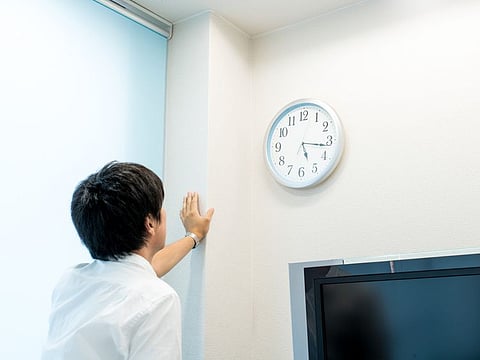Watching the clock and the passage of time
In Ireland, if you gift a watch to your girlfriend an engagement ring is on the way soon

One of the surest signs of fast-approaching winter across western Europe is the ritual of turning back clocks. From the last Sunday in October, most west European nations go through the motions of turning timepieces back one hour in autumn and forward again by an hour in the spring. Spring forward and fall back, goes the adage.
The origins of the ritual are, well, lost in time itself. Some say that it was farmers who wanted the change so as to allow for more daylight hours during the important work of preparing their fields and herds for the coming winter.
Others say it’s a tradition that was formalised during the First World War, offering munitions companies more opportunities in daylight to make more weapons to kill more people.
And they burnt less paraffin and coal to make gas to keep those factories’ lights on. I think the latter is probably the case — for how many of the life-changing or most significant innovations are the result of war?
The internet itself was created as a means for the generals and commanders of the US to be able to communicate with each in the event of a full-scale nuclear war. Thankfully that never happened, and we all can now share in the benefits of the internet.
Atomic clocks are the most accurate in the world that we have come up with to date. I doubt very much if there’s a scientist in a white coat who has to turn his atomic clock back in the autumn and forward in the spring just as a reminder that winter is coming.
Coming of age
There was a time when it was a marking of the coming of age when you were given a watch. On occasions like an 18th birthday, a watch was a very popular gift. So too when people retired. Or left an office. Or a Christmas gift for someone near and dear. The tradition in Ireland was that if you had a regular girlfriend and gave her a watch, it was taken as a sign of intent that the next significant gift would be an engagement ring.
I remember when my grandfather retired after working for 55 years in the post office, he was presented with an ornamental clock for the mantle piece above the fire. It had to be wound up to keep it working, and there was a separate wind-up mechanism for the chimes.
The origins of the ritual are, well, lost in time itself. Some say that it was farmers who wanted the change so as to allow for more daylight hours during the important work of preparing their fields and herds for the coming winterMick O'Reilly
Isn’t it more than little ironic that after a lifetime of turning up for work — most postal services around the world have very early starts — that his gift was a clock.
I’m not saying the sentiment of giving a gift isn’t a very nice tribute indeed — and it was and is — but after a lifetime of working to the grind of the clock, of setting alarms for the very early morning hours, of have 55 years of working life dictated by schedules and timetables, morning and evening deliveries, the times of mail trucks and mail trains, the last thing my grandfather needed was a clock. And a clock that you had to make time for winding up.
Isn’t retirement all about winding down? That mahogany and brass clock passed to my dad when granny and grandfather both passed. It gave a very personal meaning indeed to “grandfather clock”, and I smile a little every time I see one advertised or standing in some corner or as a centrepiece to decorate a formal room.
The passage of time is a march without end, we are all slaves to its incessant ticking. Time will be called for us all. Winter is indeed coming.


